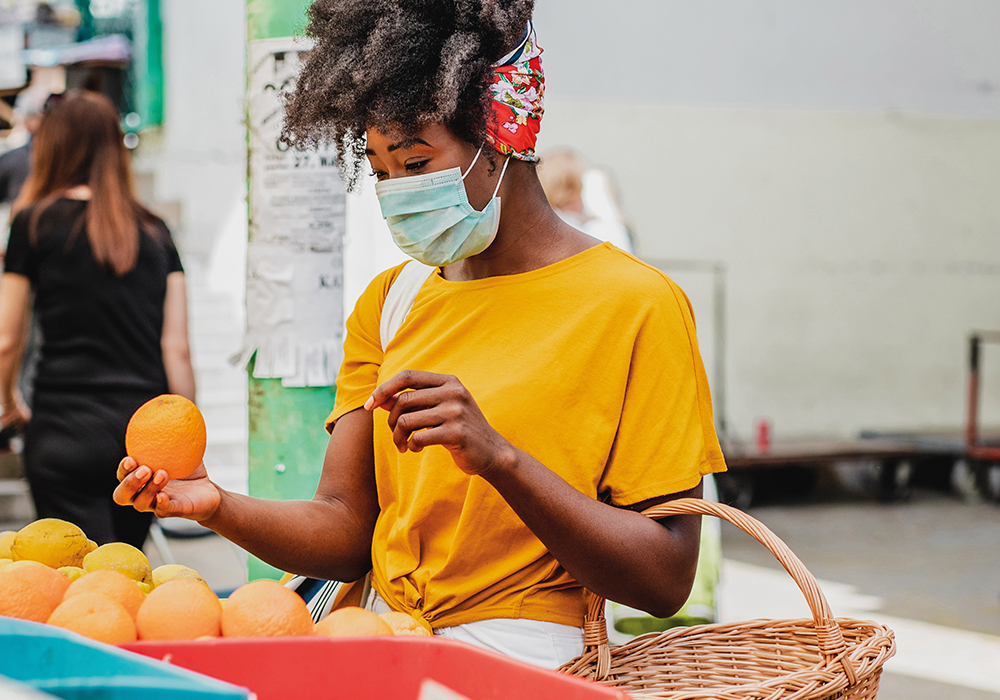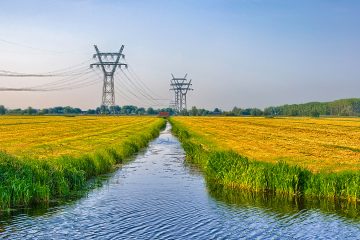Safeguarding our food supply against Covid-19 and climate change

Munich, 06 October 2020
The coronavirus crisis has highlighted the strengths and weaknesses of our food supply. In view of the threats posed by climate change, we must ensure that it is even better equipped to cope with future crises, according to a group of experts at acatech – National Academy of Science and Engineering. The experts recommend the adoption of a sustainable agricultural intensification model that combines principles of organic and conventional farming, supported by new technologies. The decisions required to promote this model should be taken as part of the forthcoming reform of the European Union’s Common Agricultural Policy (CAP).
“As far as the food supply is concerned, Germany has coped very well with the coronavirus crisis so far”, says acatech Vice-President Reinhard F. Hüttl. Among other things, this is due to the fact that its logistics systems and supply structures were able to adapt rapidly and effectively to the sudden changes brought about by the crisis, so that supplies of food and key agricultural inputs could be maintained. Moreover, the self-sufficiency rate in Germany (i.e. the ratio of domestic production to domestic consumption) is close to or higher than 100% for many foodstuffs such as grain, potatoes, milk and meat. However, Reinhard F. Hüttl adds that “The situation is somewhat different for fruit and vegetables. Germany imports many of these products from southern European countries that were hard hit by the pandemic, especially during its early days. As a result, fruit and vegetable prices in April 2020 were 14% and 26% higher respectively than in April 2019.”
Early lessons from the coronavirus crisis
Despite the fact that, by and large, the food supply has not been severely impacted, the expert group chaired by Reinhard F. Hüttl has identified a number of early lessons that Germany can learn from the coronavirus crisis. Our existing regional and global supply chains successfully complement each other to ensure a stable food supply. This means that it is essential for borders to remain open for food products, key agricultural inputs and labour, even during times of crisis. Easily accessible and reliable information about border restrictions that have been implemented at short notice is also important for the logistics industry. Moreover, the pandemic foregrounded the influence that large processing operations have over entire value chains, especially in the meat industry. Substandard working conditions in certain food supply businesses were also highlighted in this context.
The global perspective: combatting hunger and hidden hunger
At a global level, the team led by Reinhard F. Hüttl concluded that, compared to previous crises, the impacts of the current pandemic have been mitigated by stabilising factors such as high reserves and greater international cooperation on food price monitoring. However, this has not prevented a loss of purchasing power in some countries. This makes it harder for people to access food, resulting in hunger or in a lack of vitamins and minerals in their diet, sometimes referred to as “hidden hunger”. Especially during its presidency of the EU in the second half of 2020, Germany has a chance to use diplomatic channels to build a broad international coalition for combatting hunger and hidden hunger.
Long-term challenges for ensuring a resilient food supply
The working group also addresses the challenges involved in ensuring the continued resilience of the food supply once the coronavirus crisis is over. In particular, agricultural producers themselves must get ready to cope with long-term changes such as climate change. For example, an increase in extreme weather phenomena such as periods of severe drought could cause crops to fail more frequently in the future. According to Reinhard F. Hüttl, “In the long term, productive food production will require a sufficient area of agricultural land with good-quality soil. For this to be possible, it will be necessary to address land use conflicts, biodiversity loss and climate change, which is causing major changes in cultivation conditions. Moreover, the number of agricultural producers and processing operations in Germany is declining continuously. The processing sector is becoming increasingly concentrated, with just a handful of major companies. The impacts of just one of these companies failing can make themselves felt very quickly.”
Sustainable intensification bridges the gap between organic and conventional farming
A resilient food supply must overcome the contradictions between high yields and sustainability. According to the expert group, sustainable agricultural intensification can provide a model for achieving this goal. Sustainable intensification combines organic and conventional farming methods with circular economy principles to enable agricultural production that is both environmentally sustainable and efficient. This approach will require closer cooperation between researchers in academia and industry and agricultural practitioners.
The expert group calls for a greater diversity of cultivation methods and crops, new breeding techniques to create plants that can cope with a changing climate, digitally connected smart farming and smart logistics. The design of new processes and products can also help to support viable closed-loop recycling. The efficient multiple reuse of naturally produced raw materials for the bioeconomy – such as bioplastics – can reduce negative environmental impacts. Alternative products such as meat substitutes can also contribute to a smaller environmental footprint.
A shared vision for consumers, retailers, farmers, policymakers and researchers
Food and farming are the subject of intense public debate. Farmers, retailers and consumers will all need to pull in the same direction if we are to bridge the gap between organic farming and conventional intensive farming. New products and more sustainable production methods will only become established if they enjoy public support and there is demand for them among consumers.
Implementation also depends on an appropriate policy and economic framework. The EU’s Common Agricultural Policy (CAP) has a key role in the development of agricultural production. The substantial subsidies that farmers receive through the CAP have hitherto been largely based on cultivated area. Attaching considerably more weight to ecosystem services could contribute to a sustainable and resilient agricultural system. The overall framework should be carefully shaped to promote efficiency, resilience and sustainability and to reflect circular economy principles. Policymakers must also ensure that farmers can continue to make a living from farming, that food security continues to be guaranteed for our society and that the environment and rural areas remain in good, liveable condition.


